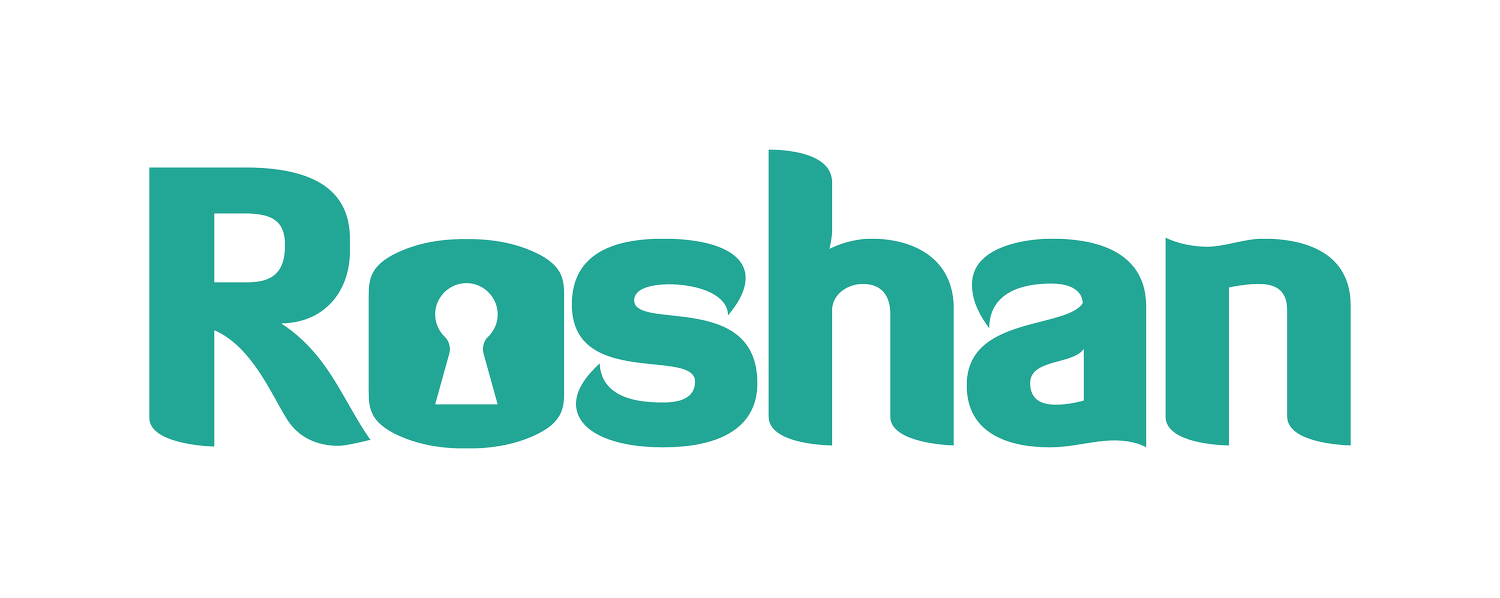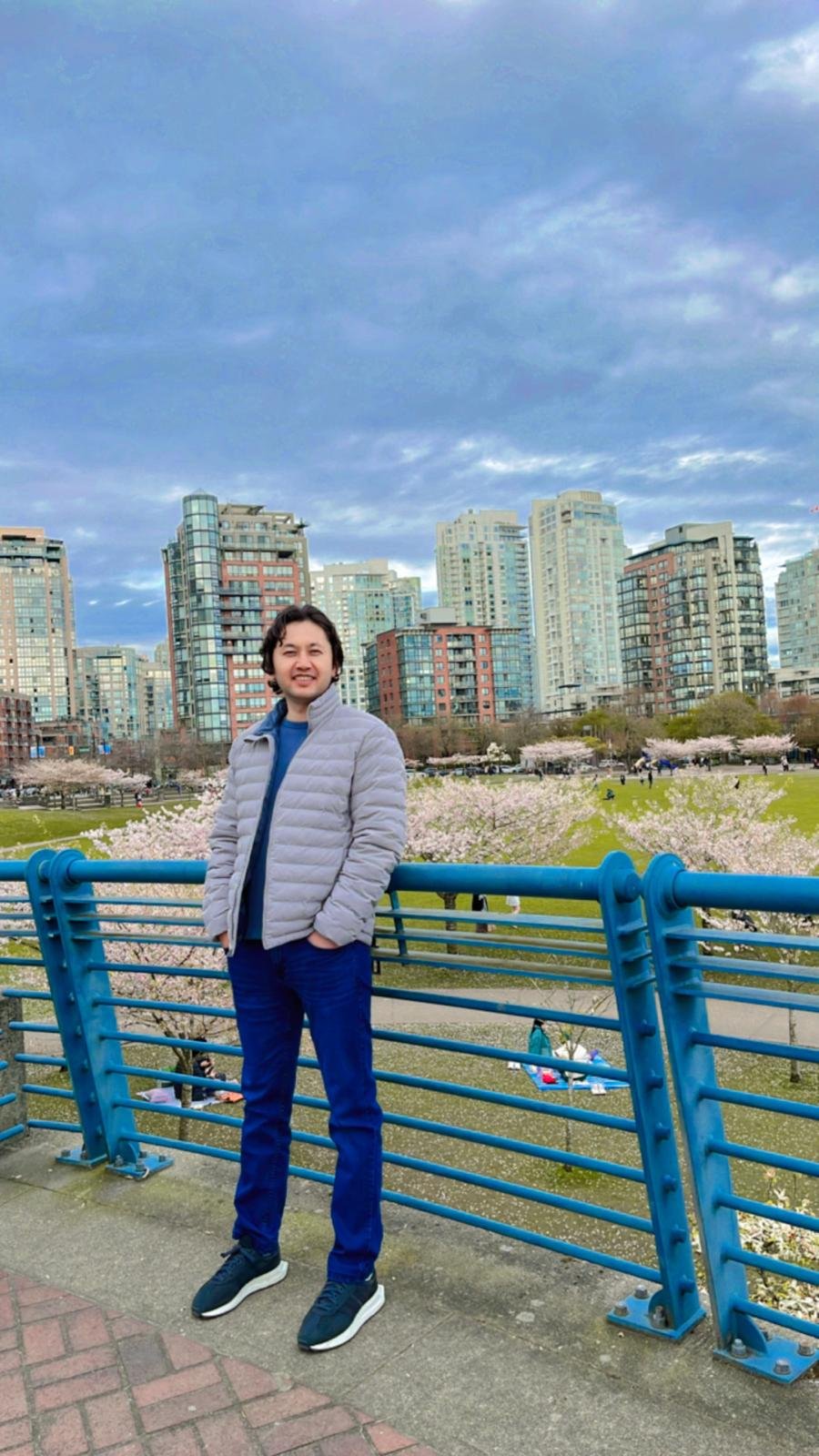Finally, Freedom and a New Life: Musa’s Story
Every weekday for nearly two years, Musa and I would arrive at Roshan around the same time. Sometimes I would arrive first and he would walk into our shared office shortly thereafter, always a laptop or notebook under one arm and a mug of coffee in the other hand. On other days I would arrive to find him already at his desk, steam rising from his mug (as much a part of his daily uniform as his short haircut and navy blue Roshan t-shirt) as he typed away at his keyboard. Every morning started with a standard greeting: “Hi, jelek. How are you?”
My good friend and former colleague had finally been resettled to Canada in 2022, after over a decade in Indonesia and nearly seven years as a Roshan volunteer teacher and first GED Program Manager. Life had become very busy and we hadn’t spoken much since – until last week, when I invited him for an interview over Zoom.
When Musa joins the virtual meeting room, the first thing we do is laugh. It has been too long. Musa looks different: dressed in a plain shirt, he wears his hair quite a bit longer now, pulled back by a simple hairband. There was, however, no mistaking it was him: “Hi, jelek,” he grins. “How are you?”
A Farewell to Indonesia
Musa’s departure had been rather sudden. With only ten days’ notice before his flight, there was no time to have the usual farewell celebration at Roshan. He left most of his belongings behind (including his beloved motorbike). “I want to go, that’s it. I just want to go,” he tells me.
It is not difficult to understand why. For many young adults and teenagers who come to Indonesia as refugees, he says, the wait takes what should be the best years of their lives. Having arrived as a 20-year-old, single male refugee from Afghanistan, Musa had expected a couple years of separation from his family and hometown. He was almost 30 by the time he moved to Vancouver.
Saying goodbye to Roshan and Indonesia was one of the most emotional and bittersweet moments of his life. “I was leaving the community, but now I am free,” he says. “I didn’t have full access to the human right, such as work, education [...] I am here right now. I have access to everything I can do. I can study, I can work. I can travel.”
Everything was different in Canada. Nearly every aspect of Musa’s life changed. “When you come to the third country, it is completely different. The culture is different, the lifestyle is different.” Now studying Accounting while working as an assistant manager at a superstore, he says it is like two different worlds.
Fortunately, he was well-prepared to adjust to his new life. On top of the working and management experience he gained as Roshan’s first GED Coordinator – which helped him get a job – Musa says Roshan helped him to improve his English and communicate better with people from different cultures. “To any refugee living in Indonesia or anywhere in the world waiting for resettlement, first thing: try to improve English or language of the country you are going to. Very, very important. You have to have a goal when you come to the third country.”
A Reunion in Iran
After resettlement, Musa had another goal. He could now travel, a freedom that quickly proved to be important: a doctor told him he needed skin cancer surgery near his eye. It was prohibitively expensive to do it in Canada, so he arranged to have it done in Iran for a fraction of the cost. The trip came with a silver lining. Musa would get to reunite with his family.
One of eight siblings, Musa hadn’t seen his youngest brother (who left Afghanistan in 2011) in sixteen years, and around fourteen since he saw his other sisters and brothers. As Musa arrived at the airport, they were already there waiting for him.
It was a happy but deeply emotional moment. “Some of us grow, some of us become older,” he says. His older sister did not recognize him at first. Musa himself had a difficult time seeing how much his younger brother had grown up.
The family stayed together for one month as Musa recovered from his surgery. When it was time to return to Canada, Musa had to bid farewell to his family again and go back to living alone. “For those refugee who is living with their family they have to be very happy. They are beside their family,” he says. “Family is one of the biggest parts of life. You realize that when you go away from them for many years.”
“I really want to go back to Afghanistan. [...] I really want to go sit beside my sisters, my brothers, and live there, and do like regular living, like other people.”
A Roshan ‘Community’ in Canada
It was hard for Musa to be separated from his family and the Roshan community. He had no one to ask for help, so he had to figure everything out himself. Over time, he was joined in Vancouver by a few former Roshan volunteers and students.
There are about three families and over ten individuals in his area, all from Roshan, he estimates. Having navigated the complex processes of setting up a new life in Canada (such as filling out documentation and getting a driver’s license), Musa now uses his knowledge to support others to do the same. “We help each other a lot,” he says.
Although living by himself can become lonely, it has meant a great deal to Musa to have a small ‘Roshan community’ there. He is even part of a “Roshan gang” – a few close friends who had all grown up in, or volunteered together at the learning centre. “We try to do something fun, that’s the only thing we try to do,” says Musa. They go to the park, meet up and chat, and have meals together.
“We call each other – let’s go out, let’s go gym, let’s go park, or let’s go somewhere. At least we know somebody. If you need anything, you get sick or you go to hospital, you have somebody to call and you can count on them.”
The Gift of Life-Changing Education
Having kept in touch with many former students, Musa understands more than ever how impactful it has been to be part of Roshan. “They learned English in Roshan. All of them,” he says. He has noticed that, while many incoming refugees struggle with the language, members of the Roshan community do not seem to have that problem. It is a lot easier to navigate the resettlement system when language is not an issue, Musa explains.
“And most of them got their high school diploma from GED or Elite,” he says, mentioning a few familiar names. Many have landed scholarships at prestigious universities in Canada and others have found well-paying jobs, he says.
When the GED Program first began – the first of its kind in Indonesia – it was hard to imagine this outcome. “We didn’t believe at that time that we were going to have a GED graduation,” he admits. The program was expensive to run and finding funding was a challenge. “But through Roshan it became possible.” Thanks in part to his relentless, hard work over 3.5 years developing the program, it grew to 75 active students and had nearly 40 graduates by the time he left for Canada. Musa is, of course, quick to acknowledge the contributions of others, from other Roshan staff to Board members, donors, and volunteers.
He has not forgotten the many young people still waiting for resettlement in Indonesia. He encourages giving to Roshan to keep making these opportunities possible. “For the future of those young refugees, children who is living in Indonesia, a single – single – dollar of those donors, a minute and second of hard work of the staff at Roshan is very important,” Musa says. “But that single minute cannot go through without the support of those donors.” Every dollar, he says, helped to change the life of a refugee who got to graduate from or participate in a Roshan program
Although it has been years since his resettlement, Musa is grateful that Roshan allowed him to use his time in Indonesia to help others. “Helping people, it doesn’t matter where they come from,” he says. “It should be part of our daily job to help them grow and provide opportunity.”
Check out Musa’s inspiring back story shared in 2019, just five years ago!
This story was contributed by Sheri Lohardjo, a former YICF/Roshan staff member.








